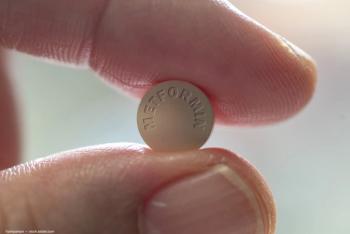
COVID-19 vaccine’s impact on eyes investigated by researchers
A study in the United Arab Emirates reported a possible link between adverse ocular events and a COVID-19 vaccination.
Investigators in the United Arab Emirates reported a possible association between ocular adverse events and a COVID-19 vaccination (Sinopharm).1
The events developed after patients received the first dose of the vaccine. First author Francesco Pichi, MD, from the Eye Institute, Cleveland Clinic Abu Dhabi, and colleagues expect to see an increasing number of such ocular adverse events with increasing numbers of vaccinations distributed.
As the COVID-19 vaccinations continue to be administered, the investigators pointed out the importance of reporting the details of the potential ocular adverse events to alert the medical community.
This vaccine, developed by Sinopharm’s China National Biotec Group, is mixed with an aluminum-based adjuvant, which was “found tolerable and immunogenic in healthy people with 2 doses administered 21 days apart.”
The authors conducted a retrospective case series from September 2020 to January 2021, and identified 7 patients (9 eyes; 3 men, 4 women) who presented with ocular complaints after receiving the first dose of the inactivated COVID-19 vaccine.
The ocular complaints included 1 case each of episcleritis, paracentral acute middle maculopathy, and subretinal fluid and 2 cases each of anterior scleritis and acute macular neuroretinopathy.
One of the patients developed uncontrollable systemic hypertension, which was a reaction to the vaccine.
The mean patient age was 41.4 years (range, 30 to 55 years). The mean best-corrected visual acuity was 0.23 logarithm of the minimum angle of resolution (about 20/32 Snellen).
The complaints developed an adverse a mean of 5.2 days (range, 1 to 10 days) after the first vaccination.
“In this case series of 7 patients, the timing of transient and ocular complications 5.2 days after vaccination with an inactivated COVID-19 vaccine supported an association with the ocular findings, but a causal relationship cannot be established from this study design,” Pichi’s team concluded.
Reference
1. Pichi F, Aljneibi S, Neri P, et al. Association of ocular adverse events with inactivated COVID-19 vaccination in patients in Abu Dhabi. JAMA Ophthalmol; Published online September 2, 2021; doi:10.1001/jamaophthalmol.2021.3477
Related:
Newsletter
Keep your retina practice on the forefront—subscribe for expert analysis and emerging trends in retinal disease management.




























